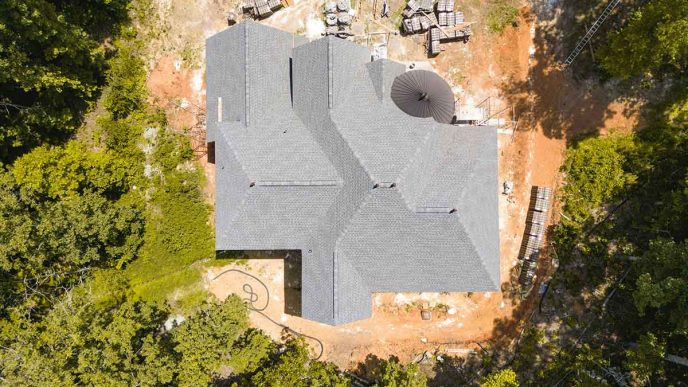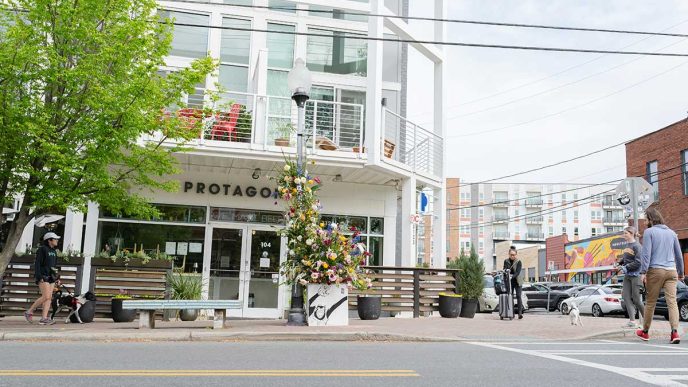Charlotte’s Real Estate Climate
The Charlotte housing market in 2024 is characterized by robust activity, with both the purchasing and rental segments showing compelling trends. The median home price in Charlotte is approximately $410,000, reflecting a 4.5% increase from the previous year, which underscores a steady appreciation in property values despite a broader slowdown in growth rates nationally. This environment has led to competitive conditions, where properties, particularly in popular areas like South End and NoDa, often receive multiple offers and sell quickly, sometimes above the asking price</searchRefSen>. Meanwhile, the rental market echoes this trend with average monthly rents reaching about $1,800 for a two-bedroom apartment, driven by low vacancy rates and high demand. These dynamics create a challenging environment for both potential buyers and renters, necessitating a careful assessment of what each option entails.
Advantages and Disadvantages of Renting
Renting offers several distinct benefits, particularly in terms of financial flexibility and reduced responsibility. Without the need for a significant initial investment such as a down payment, renters can avoid the considerable upfront costs associated with purchasing a home. Moreover, renting relieves tenants of the burden of ongoing maintenance and repair expenses, which remain the landlord’s responsibility. This can be particularly appealing in a fast-growing city like Charlotte, where residents may want the flexibility to relocate easily as their employment circumstances or personal preferences change.</p>
However, renting also presents limitations. Renters do not build equity in their homes, which can represent a missed financial opportunity as home values continue to climb. Additionally, renters may face annual rent increases, which can introduce financial uncertainty over time. In Charlotte, for instance, rising demand has contributed to a steady escalation in rental costs. Furthermore, renters have less control over their living environment, lacking the ability to make significant modifications or improvements to their living spaces.
Benefits and Drawbacks of Homeownership
Buying a home presents a pathway to significant financial benefits, chief among them being equity growth and investment potential. Homeownership allows individuals to capitalize on property appreciation—a particularly noteworthy advantage in a market like Charlotte where home values are forecasted to continue rising. By owning a home, individuals not only stabilize their housing costs with fixed mortgage payments but also gain the opportunity to customize their homes to their liking. This transforms a home purchase into not just a place to live, but an investment in personal satisfaction and financial growth.
The journey to ownership, however, is not without its challenges. The initial financial requirements of buying a home—including down payments, closing costs, and the long-term commitment to a mortgage—can be formidable. In Charlotte, where the median home price continues to rise, such costs can be a significant barrier. Additionally, homeowners must manage ongoing expenses, such as property taxes and maintenance, which can be unpredictable and burdensome. This underscores the importance of considering both the financial and personal readiness for taking on the responsibilities of homeownership.
Conclusion
Ultimately, the decision to rent or buy in Charlotte’s housing market is influenced by a diverse mix of economic factors and personal priorities. Renting may offer the convenience of flexibility and lower immediate costs, making it suitable for those who prioritize adaptability or face financial constraints. Conversely, purchasing a home is ideal for individuals seeking long-term stability, equity building, and the satisfaction of owning their own property. This choice demands a careful alignment of personal priorities with the current economic landscape in Charlotte, as well as a consideration of future aspirations, ensuring that the chosen path supports both present comforts and future goals.</p>
2024 Market Highlights:
- Median Home Price: ~$410,000 (4.5% increase from previous year)
- Competitive Conditions: Homes in popular areas (e.g., South End, NoDa) often sell quickly, sometimes above asking price
- Rental Rates: Average monthly rent ~$1,800 for a two-bedroom apartment
- Low Vacancy & High Demand: Both buyers and renters face challenging conditions due to sustained interest in the region
Implications for Buyers and Renters:
- Buyers: Need to be prepared for competitive offers, rising prices, and sometimes limited inventory.
- Renters: Encounter higher monthly rates and fewer vacancies, requiring flexibility and potentially quick decision-making.
Advantages and Disadvantages of Renting
Advantages of Renting:
- Lower Initial Costs: No large down payment required, which preserves liquidity for other investments or expenses.
- Reduced Responsibility: Landlords typically handle maintenance, repairs, and property taxes.
- Flexibility: Easy relocation options, ideal for those uncertain about long-term plans or anticipating career changes.
- Lower Commitment: Shorter lease terms allow testing different neighborhoods without a long-term mortgage.
Disadvantages of Renting:
- No Equity Buildup: Monthly payments contribute to someone else’s asset, missing out on potential property appreciation.
- Rising Costs: Annual rent increases can lead to financial uncertainty and higher monthly expenses over time.
- Limited Control: Restrictions on property modifications and personalization.
- Uncertainty of Tenure: Landlord decisions (e.g., selling the property) can force tenants to relocate unexpectedly.
Renting Rating (Out of 5):
- Flexibility: ★★★★★
- Upfront Costs: ★★★★★
- Long-Term Financial Benefits: ★★☆☆☆
- Control Over Living Space: ★★☆☆☆
- Stability: ★★★☆☆
Benefits and Drawbacks of Homeownership
Benefits of Buying:
- Equity Growth: Payments build ownership interest, and appreciation in Charlotte’s market can significantly boost net worth over time.
- Stability: Fixed mortgage payments (for those with fixed-rate loans) stabilize housing costs against rent hikes.
- Personalization: Full freedom to renovate, decorate, and improve the property.
- Long-Term Investment: Potential to leverage home equity for future financial needs or other investments.
Drawbacks of Buying:
- High Initial Costs: Down payments, closing costs, and inspection fees can be substantial.
- Ongoing Expenses: Maintenance, repairs, property taxes, and insurance add to long-term carrying costs.
- Market Volatility: If home values stagnate or decline, homeowners can face reduced equity or difficulty selling.
- Commitment: Less flexibility if personal circumstances change, such as job relocation or shifting family needs.
Buying Rating (Out of 5):
- Long-Term Financial Benefits: ★★★★★
- Control Over Living Space: ★★★★★
- Stability: ★★★★★
- Upfront Costs: ★★☆☆☆
- Flexibility: ★★★☆☆
- Consider Renting If:
- You seek flexibility and anticipate changes in your job or personal life.
- You prefer not to handle property maintenance or commit to a large down payment.
- You want to “test out” Charlotte’s neighborhoods before settling permanently.
- Consider Buying If:
- You envision living in Charlotte long-term and want to benefit from property appreciation.
- You have the financial stability to manage upfront and ongoing costs.
- You desire full control over your living space and view homeownership as part of your financial strategy.
As Charlotte continues to develop, understanding these factors is essential for making a decision that aligns with your lifestyle and financial situation. Taking the time to weigh flexibility against equity, immediate costs against long-term gains, and personal control against convenience will ensure that your chosen path—renting or buying—maximizes the benefits of this dynamic and evolving market.













